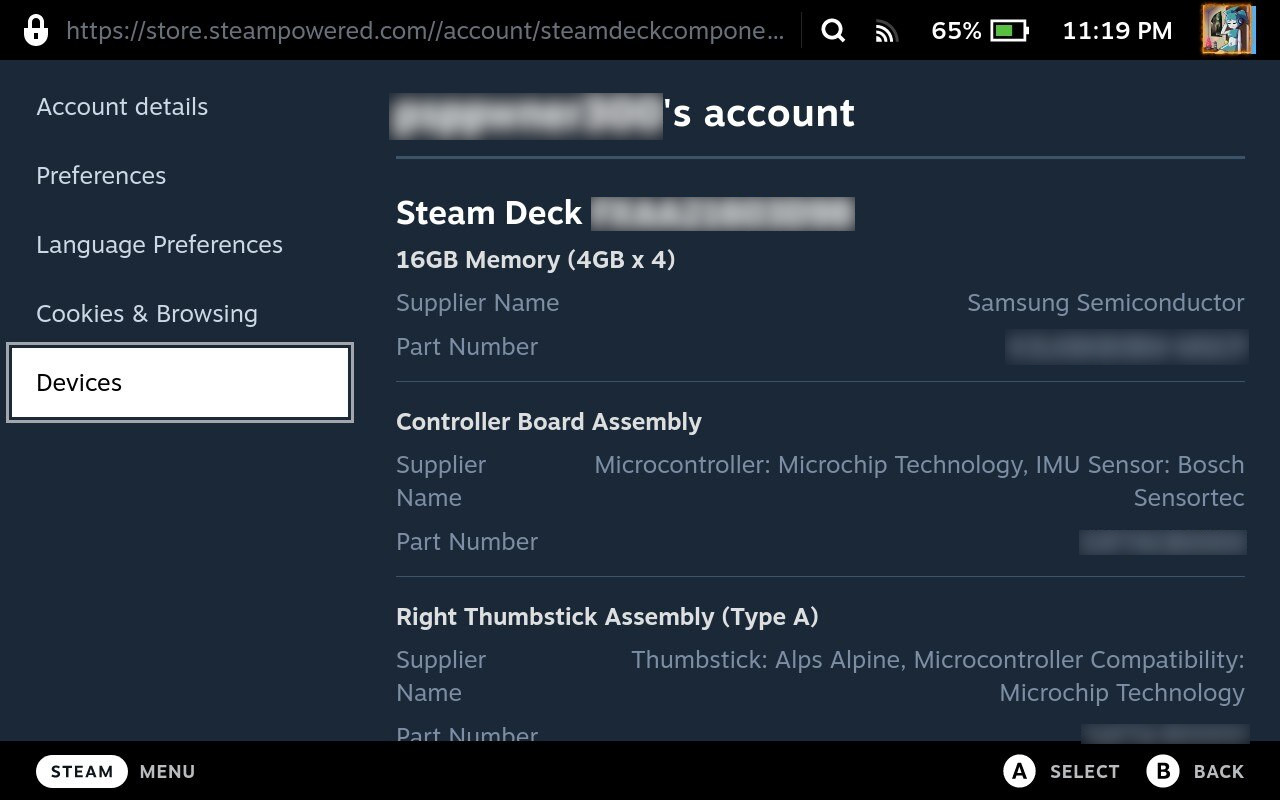Steam Deck Client Beta Adds Component Lookup View, Ability to Skip Startup Videos

Today’s beta Steam Deck client update allows the user to check the individual components that make up their Deck. As you can see in the cover photo, I can see how much memory is in the Deck, who the supplier is, the part number, and I can see these same statistics for every nook and cranny that make up the device, including the:
- controller board
- thumbsticks
- LCD
- eMMC module
- PSU
- custom APU
- speaker module
- fan
- thermal module
Per Steam’s blog post, this was made in the effort “to provide further clarity and transparency about the components and their sources for your specific Steam Deck.” It will also be useful when customers are looking for replacement parts, and knowing what the proper replacement will be. Keep in mind any repairs that are made after the manufacturing of the Deck – the Component View will not be updated with this information.
They also added a note regarding the fan:
Earlier in the year we investigated reports about fan noise, and rolled in an engineered foam solution on the Steam Deck backplate to reduce noise. This noise mitigation solution is now being applied to both models of fans used in Steam Deck (Delta and Huaying), and both fan models are still in use and being shipped out to customers today.
But there’s a lot more than just the Component View with this new update. Startup movies can now be skipped with the B button. Games to Play Together feature is now supported. Changes to the local network connection have received improved responsiveness, and without said local connection, there’s no longer the “Connecting to Steam…” delay when launching a game.
Steam Input has gotten some more love as well. Custom virtual menu icons are now supported. Support for the HORI Fighting Commander OCTA and Qanba Drone Arcade sticks have been added, and support for third-party PlayStation gamepads have been improved.
Finally, a Remote Play crash has been fixed when enabling the performance graph with certain languages, audio should play at the proper volume (rather than being quiet when the volume’s set to high), and automatic spelling correction has been enabled for Store and Library search results.
See the patch notes on Steam.